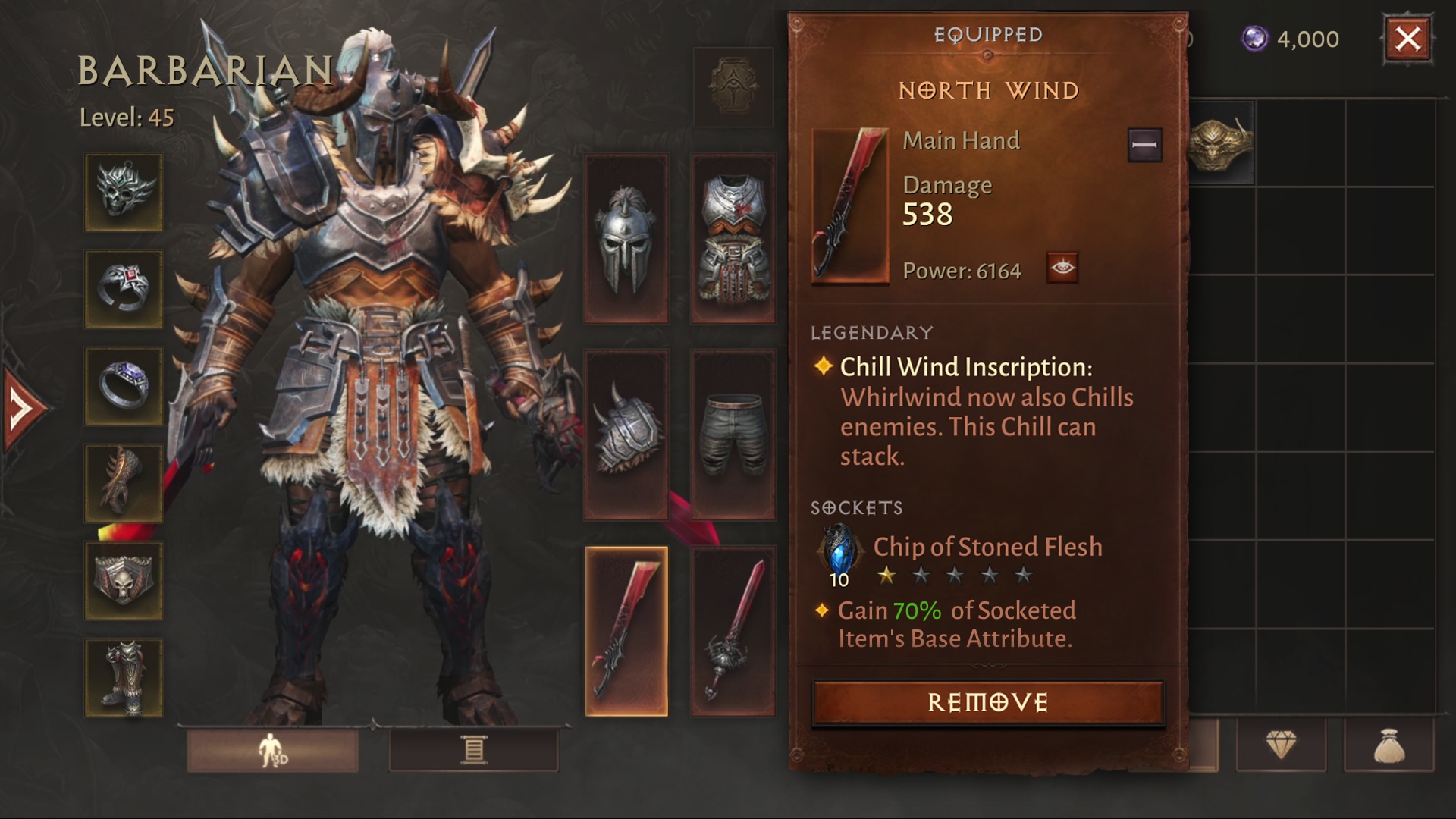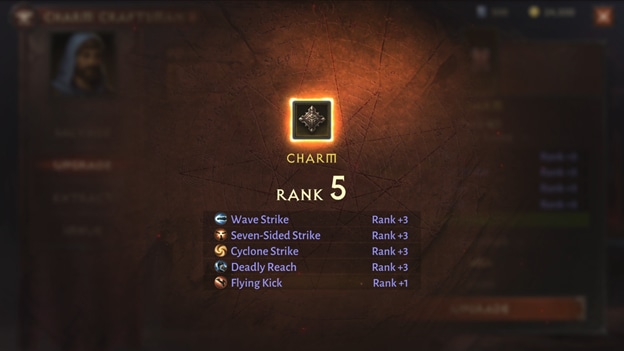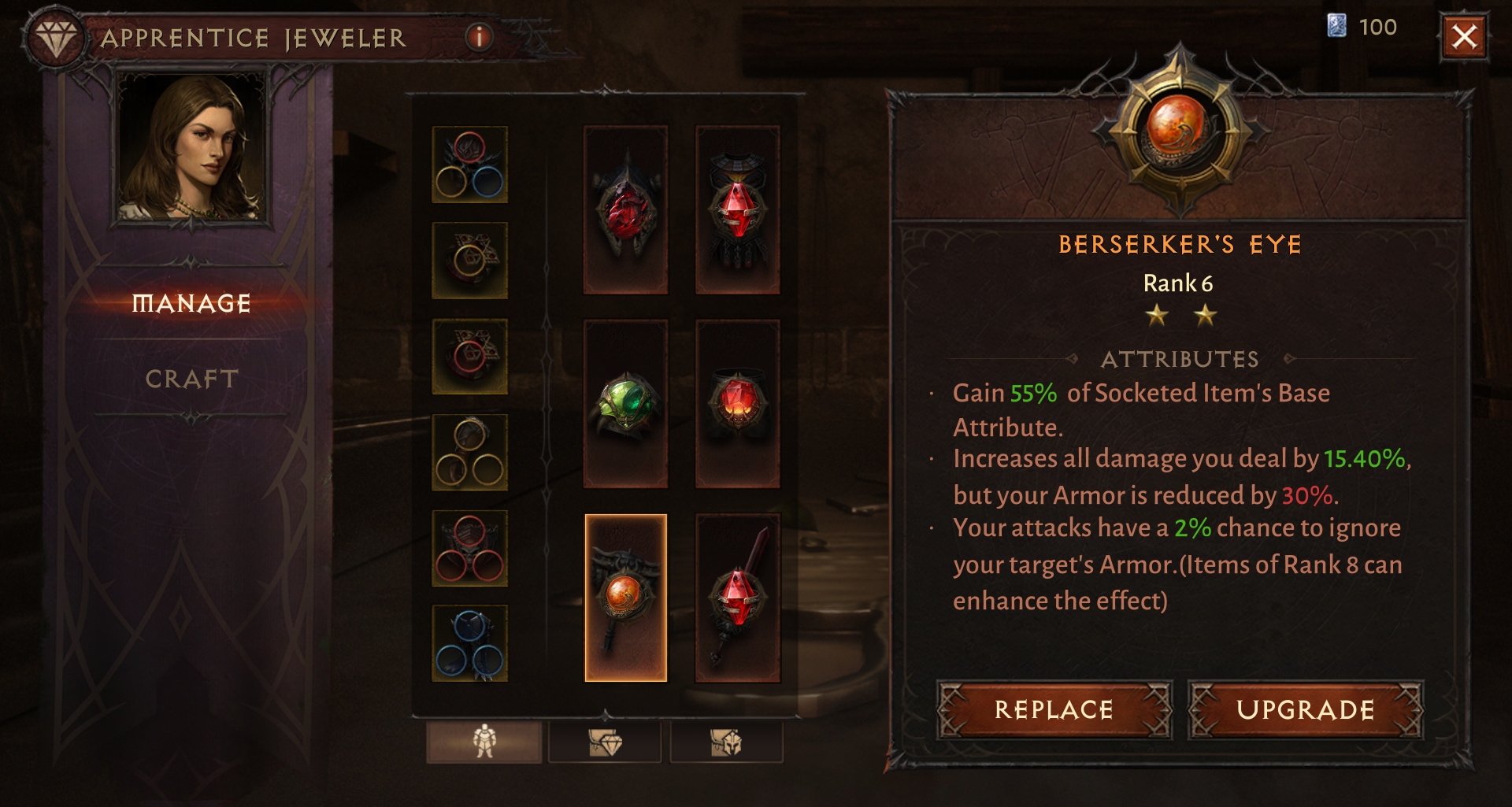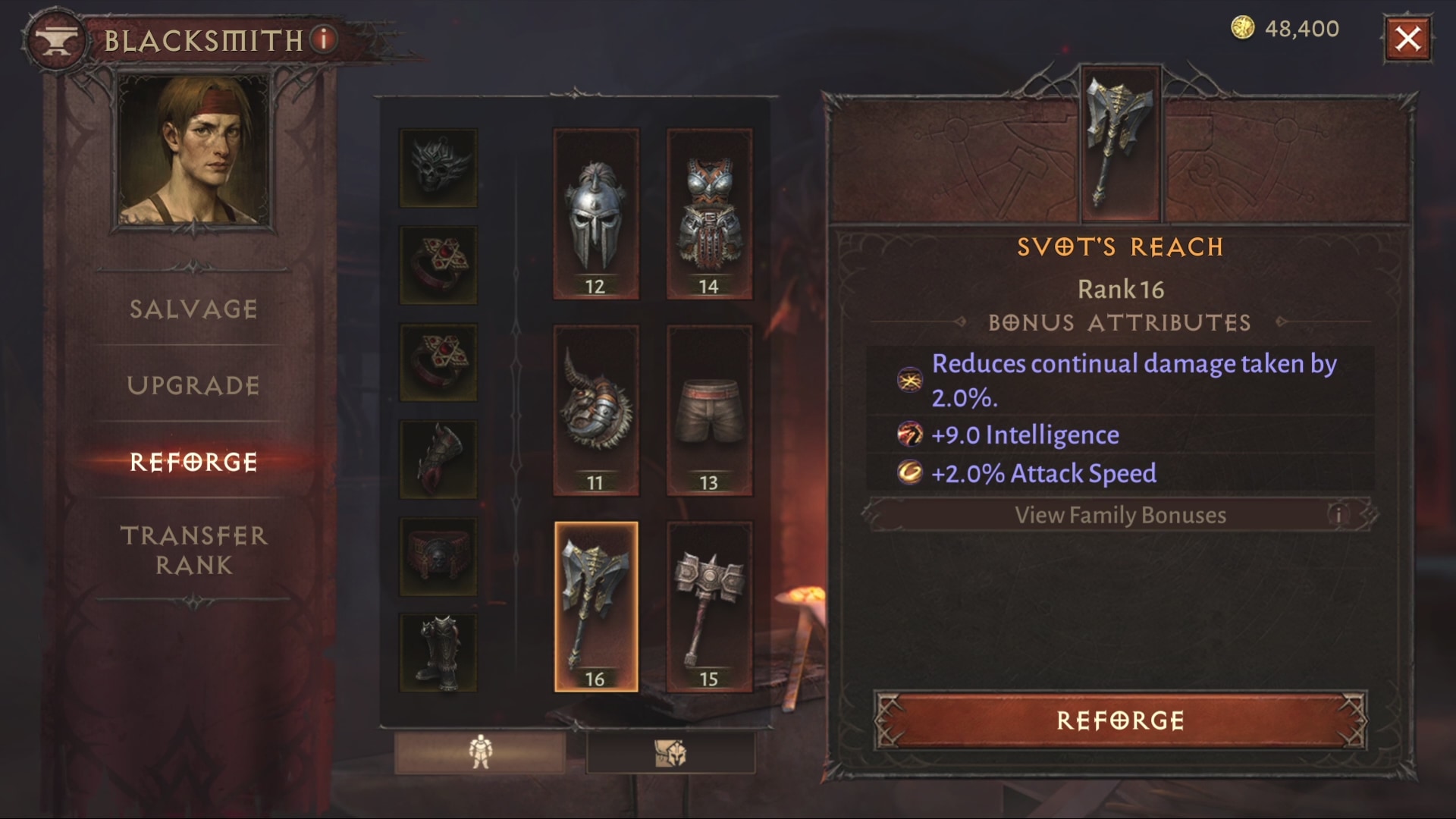The Technical Alpha is a small-scale, early test of Diablo Immortal that will primarily include players from Australia. You can find more details on the Technical Alpha in our Alpha Announcement blog, but even if your region isn’t part of the test, we’re not going to leave you in the dark.
No Diablo game is complete without a deep, rich, and rewarding loot system. Diablo Immortal aims to be true to its itemization roots while pushing the envelope—but it has different itemization needs and goals than a traditional action-RPG. We want to give you exciting choices and plenty of flexibility so you can build your character your way, with the understanding that no two Diablo games are (or should be) alike.
Diablo Immortal is still in active development, so what you’re about to read is therefore subject to change.
The Makings of an Item
Philosophy: Items are one of the most important parts of Diablo. Diablo Immortal’s items are intended to provide you with continuous opportunities to progress, either by ranking them up to unlock their potential, or by replacing them with better gear. The stat bonuses items provide should help your character feel more effective at one or more aspects of combat.
Gear in Diablo Immortal usually has three types of stats: Base Stats, Attributes, and Magic Attributes. In addition, truly powerful items can have sockets, Legendary attributes, and more.
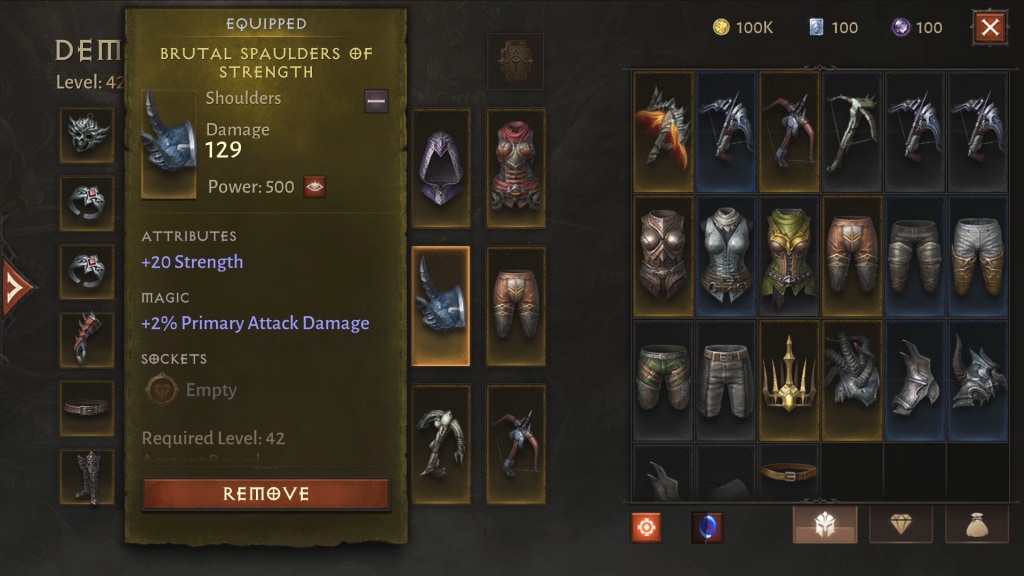
- Life increases your hit points.
- Damage increases the damage dealt by weapons, and it’s increased by your primary Attribute.
- Armor provides damage reduction against enemies’ non-magical attacks.
- Armor Penetration reduces the effectiveness of enemies’ armor against your attacks.
- Offense Rating increases your damage by a percentage based on your opponent's Defense Rating.
- Defense Rating reduces your damage taken by a percentage based on your opponent's Offense Rating.
- Potency makes your debuffs on enemies last longer.
- Resistance reduces debuff durations on you.
Attributes include Strength, Intelligence, Fortitude, Vitality and Willpower.
- Strength is the primary Attribute for the Barbarian, Monk, and Demon Hunter.
- Intelligence is the primary Attribute for the Wizard.
All attributes increase your Offense and Defense Ratings. Primary attributes increase damage, while non-primary Attributes provide additional defensive benefits.
- Fortitude increases your Armor and Armor Penetration in addition to Offense and Defense Rating.
- Vitality increases your Life in addition to Offense and Defense Rating.
- Willpower increases your Potency and Resistance in addition to Offense and Defense Rating.
Magic Attributes add specific powers to an item, such as Attack Speed or Cooldown Reduction, to allow further fine-tuning and playstyle customization.
Equipping Everything You Can
Philosophy: Gear slots largely remain the same in Diablo Immortal as in past Diablo games. We want to ensure Legendary items feel truly special, so they are reserved for the item slots that better highlight their unique appearances and powers.
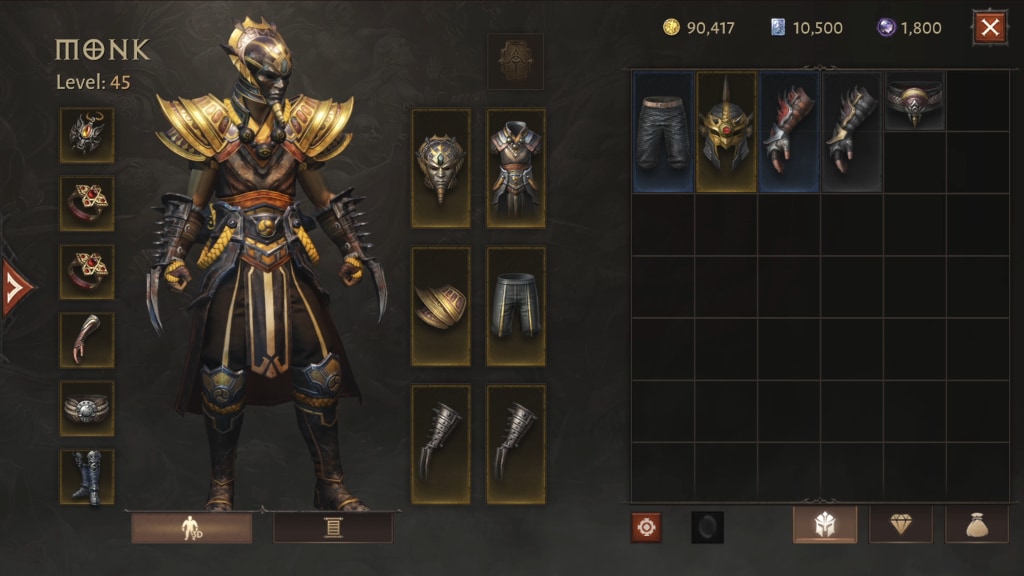
Primary Gear Slots
- Head
- Legs
- Torso
- Weapon
- Shoulder
- Off-Hand/Secondary Weapon
Secondary Gear Slots
- Neck
- Waist
- Ring (1)
- Ring (2)
- Feet
- Hands
Items of Uncommon Quality
Philosophy: Items of all qualities should provide enough incentive for you to pick them up. No matter an item’s quality, you shouldn't feel like your effort to collect an item is wasted as every item can either be equipped, or used to fuel upgrades for your other items.
In Diablo Immortal, equippable items range from lowest to highest quality: Normal (white), Magic (blue), Rare (yellow) or Legendary (orange) items. Set (green) items will not be in Diablo Immortal, as we want to leave room for players to mix and match their legendary powers the way they want.
The higher the quality of the item, the better and more stats it has. Magic and Rare items spawn with named affixes that denote what Magic Attributes (types of stat boosts) the item in question provides. For example, a “Purified Short Sword of Authority” denotes a Short Sword (base item type) enhanced with the “Purified” (added damage to demons) prefix and “of Authority” (a Strength and Willpower bonus) suffix.
Possible Magic Attributes include some usual suspects like attack speed, damage and armor bonuses, and others. New attributes include chance to cheat death (like some passive abilities in Diablo® III), buff duration increases, chance to deal increased damage to enemies who are at low health percentages, and more. We’re planning over 30 different Magic Attributes at launch with the potential to expand further.
Legendary items will also have legendary properties specific to those items. These usually modify a class skill in some way, enhancing its abilities; some have cosmetic effects. Every Legendary item is class-specific, has a unique name and visual treatment, and unique skill effects.
Item ranks
Philosophy: Item ranks should provide you a way to keep improving on items you really like, making them better, instead of forcing you to discard them for a numerical upgrade. If you love a legendary item, ranking that item up allows you to continue to use it and keep it relevant for the content you’re playing.
Rare and Legendary items can be further upgraded through a new system we’re calling item ranks. Rare (yellow) items drop at rank 0, and can be raised up to rank 5 by visiting the appropriate crafters and spending the necessary crafting materials. Each additional rank adds stats to the item. Legendary items can have a rank of up to 20, and they possess an additional benefit we’re calling Bonus Attributes; more on that below.
Polishing All Your Weapons
Philosophy: Items are just one part of your character’s power. Charms, gems, and other item-enhancing materials should help you further define what you want your hero to be good at and provide alternate paths of progression.
Charms
Charms provide between one and five unique skill rank bonuses for all classes, rolled randomly. You can break unwanted charms into skill stones, which you can then use to reroll the bonuses on other charms.
Since charms can modify up to five different skills from any class, you’ll want to use the rerolling process to grant the specific skill bonuses you desire. Charms occupy their own item slot, and you can only equip one at a time, so make sure yours is the right one!
Runes
Runes are crafting materials obtained from Elder Rifts. There are 15 different runes, some much harder to obtain than others. Runes are used in recipes related to Legendary Gems and items.
Gems and item sockets
Common gems each boost a specific Base Stat of the item they’re socketed into. Gems can have up to ten ranks; much like in previous Diablo games, gems are upgraded by combining three gems of the same rank to obtain one gem of a higher rank. For example, you can visit an artisan in town to combine three rank 3 gems into one rank 4 gem.
| Slot | Normal Socket Max # | Legendary Socket Max # | Socket Color/Type |
|---|---|---|---|
| Head | N/A | 1 | Legendary |
| Torso | N/A | 1 | Legendary |
| Shoulder | N/A | 1 | Legendary |
| Legs | N/A | 1 | Legendary |
| Weapon | N/A | 1 | Legendary |
| Off-hand | N/A | 1 | Legendary |
| Neck | 3 | N/A | Red, Yellow, Blue |
| Ring (Each) | 1 | N/A | Random |
| Hands | 3 | N/A | Yellow |
| Waist | 3 | N/A | Red |
| Feet | 3 | N/A | Blue |
| Total | 13 | 6 |
Legendary item slots are a special case. While these item slots are only allowed one socket per item, they also only accept Legendary Gems, detailed below.
Salvage materials
Every item you collect that isn’t useful can be broken down at a Blacksmith in exchange for salvage materials. You can then use them to increase item ranks, or in crafting recipes.
Priceless Treasures: Legendary Gems
Philosophy: Legendary gems should provide additional power to your hero, and greatly enhance their performance in combat, while providing another progression path for you to focus on.
Legendary Gems are primarily obtained through Elder Rifts with Legendary Crests or through crafting. Each gem requires specific materials (including runes) and the appropriate gem recipe to craft. Legendary Gems confer unique benefits that are not found in any other items (similar to how they work in Diablo III).
Once you obtain or craft a Legendary Gem, you can socket it in any item that occupies a Legendary slot item (a socketed item equipped on the Head, Torso, Shoulder, Legs, Weapon, or Off-hand slots) and get the benefits immediately.
Upgrading Legendary Gems
Legendary Gems will play a large role in your item progression, and as such ranking them up is very important. The basic process to upgrade Legendary Gems is to combine identical gems to produce a new, more powerful gem of that type. You can also trade any gems you don’t need on the Market. When upgrading gems, you’ll always keep the best among all gems you’re combining; higher gem ranks require combining larger quantities of lower-rank gems.
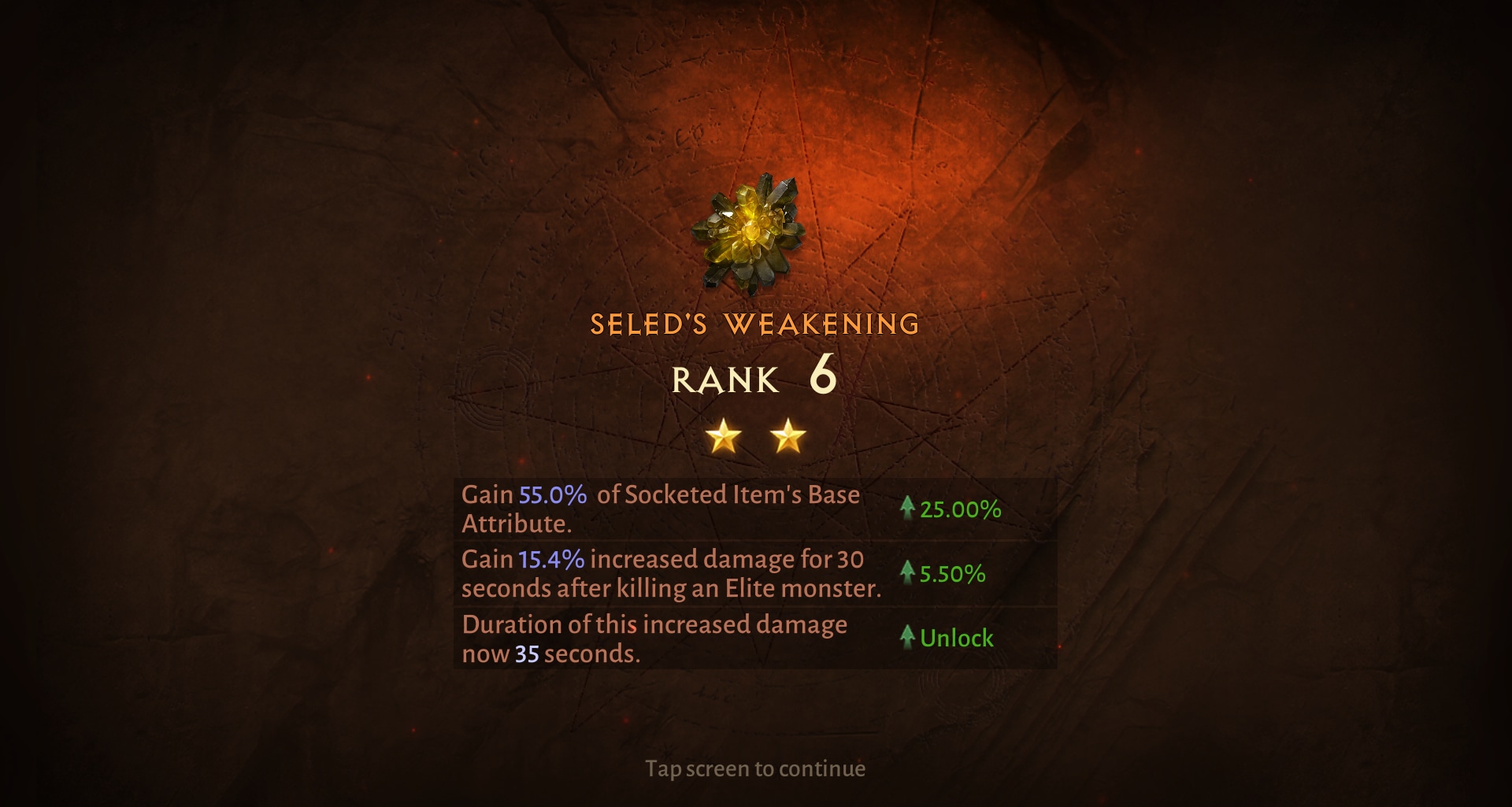
Building the Ultimate Arsenal
The absolute best items in Diablo Immortal will take time and effort to attain. Every item must be obtained and empowered by its user, and only the most dedicated will get access to a full arsenal of upgraded items. Our goal is for you to always have something to look forward to, and for this system to provide you with many hours of gameplay as you carefully consider your options.
Bonus Attributes and Reforging
Philosophy: One of our objectives for Diablo Immortal is to ensure you have plenty of goals to pursue. Ranking up Legendary items is but one of many progression paths; Reforging and Bonus Attributes can help you transform an excellent Legendary item you enjoy into something truly one-of-a-kind.
Any single legendary item has a maximum item rank of 20. Ranking an item up to 6, 11, and 16 adds a Bonus Attribute to the item. These special affixes are rolled from a pool of six different groups.
Once an item reaches rank 6, you can reforge it. Reforging allows you to reroll the Bonus Attributes of a Legendary item to fine-tune it for your build. You reforge items either with a normal Reforge Stone, which you can discover through gameplay, or with a specialized Reforge Stone, which you can purchase and use for a less random reroll of the item’s properties. Note that specialized Reforge Stones won’t give you better properties—just a bit more control over the Bonus Attributes your reforged item might have.
You’ll make a lot of decisions as you pursue unique loot in Diablo Immortal. We want the itemization system to be rich and complex while preserving your ability to play at your own pace and make continual, meaningful progress. As excited as we are to enter our first public testing phase, please remember that what we’re showing is an early look at our game’s items. We’re going to take the time to listen to your feedback and give all of our loot the right polish—and we can’t wait to hear what you think.
